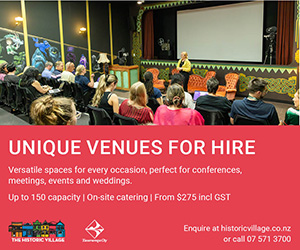Great. You’ve decided it’s time to take your New Zealand business to The Cloud. But before taking the leap, it’s important to assess the systems and processes you already have in place, as well as a number of other factors, to make your migration to the cloud as successful as possible.
There are several things you need to consider:
1) What do you really need?
It’s essential you reassess the processes you have in place for your current systems. Ask yourself, “what was the purpose of this and do we really need it going forward?”
Often organisations do things simply out of habit, and re-evaluation will help you shed the processes that aren’t necessary.
It is frequently not until you suffer a failure that you realise how important having a good backup and readily accessible files are.
Disruption to business and workflow caused by a hardware failure can not only impact your own business, it can have a knock-on effects on all those you are dealing with.
So assess your business processes and decide which ones you really need.
2) Understand your data
Cloud providers often have more security features than anything you could do in-house.
In the digital age, it’s possible to gather huge amounts of data without really realising it.
Think about all that customer information you’ve collected over social media and email, for example.
Businesses need to work out exactly how much data they have, what it is and how critical it is.
Don’t assume that your most critical data (without which your business wouldn’t be able to function) is going to be safer on-site than in the cloud.
Most cloud providers invest in a broad range of security features that you might not necessarily be able to afford for your own servers.
Things like end-to-end encryption and two factor authentication, as well as frequent patches for bugs or cyber threats, aren’t always available to small businesses, while the ability to set permissions on the cloud also goes a long way in securing your most essential information.
3) Think about what you want to integrate
Do you have a customer relationship management platform or point of sale system? It’s possible to integrate platforms like these into the cloud, so it’s worth assessing all of your other systems to see what you can connect.
You might want to migrate everything into the cloud in one go, or do it more gradually.
There are pros and cons to both strategies, and there’s no one size fits all migration plan, so it’s up to you to assess what will be best for your business.
Understanding the precise nature of the data you hold is essential when deciding what to move to the cloud.
4) Remember the end users
Don’t forget about your employees, the people who are going to be using the cloud on a daily basis.
To minimise confusion, get their feedback about what they might want from the cloud, and ensure you’re training them well before you actually migrate.
People are often resistant to change, so it’s important to educate them on exactly why you’re moving to the cloud and how it will benefit them if you want genuine employee buy in.
5) Consider hiring an adviser
We deal with cloud migration often, ensuring businesses ready to take the leap are prepared, aware of the timeline and what to expect.
Migration doesn’t always go to plan and we have a great set of fallbacks and processes in place to ensure it goes as smoothly as possible and doesn’t interfere with business as usual.
We are always happy to help when it comes to moving to the cloud, so talk to the team about what we can do for you.


















